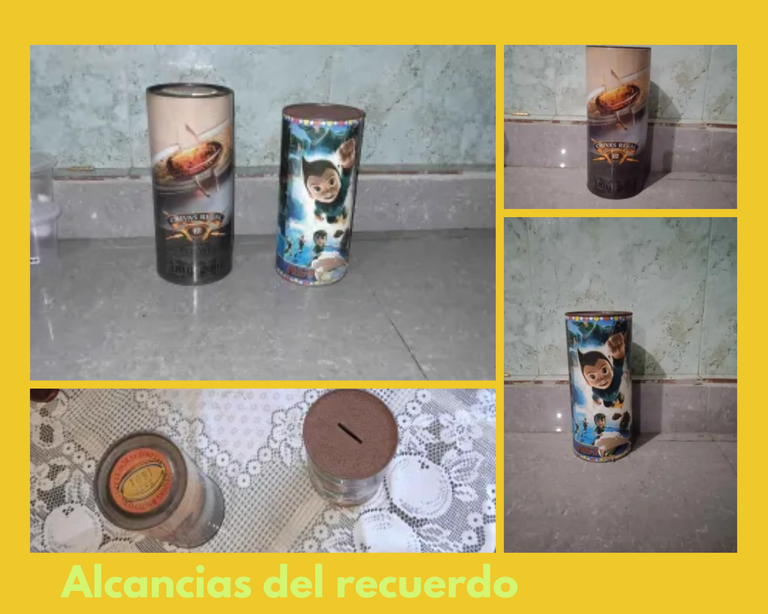
“Demasiadas personas gastan el dinero que ganaron para comprar cosas que no quieren, para impresionar a gente que no les gusta.”
(Will Rogers)
Algunas personas se acostumbran a gastar más de lo que tienen y de los ingresos que puedan generar, como se dice en Venezuela: “contar los pollitos antes de nacer”. Quizás no hay una cultura de ahorro, o simplemente el alto costo y la inflación no lo permiten. Ambas cosas son válidas. Pero lo que no se debe es gastar sin tener con qué pagar al final del mes. Se debería echar un poco en la alcancía, pero sería una falacia, como dijo el “señor aquel”, porque no alcanza para tanto.
El hogar es la base para educar en todos los sentidos, sobre todo en cuanto al dinero y el ahorro. A la mayoría de los niños sus padres les regalan una alcancía, y la más usada es el cochinito. Este animalito es engordado durante todo el año y se abría el mes de diciembre. En mi casa, lo movíamos de sitio todo el año para esconderlo por si acaso se perdía o extraviaba. Mi Esposito me dice que su cochinito él lo prestaba con intereses.
¡Muchachito este!…
Pero siempre tenía dinero, porque él ahorraba y cuando le iban a comprar su ropa, ponía para comprar lo que a él le gustara. En la actualidad, es igual de ahorrativo.
Cada familia lo hará a su manera, por supuesto alguno no porque lo tienen todo. Pero para mí es un error porque no sabemos qué pasará mañana, y a los niños hay que enseñarles que hay tiempos de abundancia, pero pueden venir tiempos de sequía. Además, enseñarlos a no competir por tener siempre más que otros niños y a no ser una marca. Cuando me refiero a la marca, es que solo usan ropa, calzados y todo tiene que ser una marca reconocida.
Hay que preparar a los hijos para los tiempos de escasez, si lo desean en forma de fábula. Recuerdan a la hormiguita, que siempre estaba cargando hojitas y trabajando mientras los otros animales se divertían y al final solo la hormiguita tuvo comida en el invierno frío. Mi familia pasó tiempos difíciles, pero nunca se dieron por vencidos. Mis hermanos mayores colaboraban en el hogar cuando no estaban en clases ni estudiando.
Papi les prestaba su carro, un fin de semana para descansar, de lo que se hacía en el día una parte era para invitarnos a comer hamburguesas o helados. ¡Wuao! ¿Cómo olvidar esos momentos tan especiales? Pero tenían que dejar a la alcancía de la avena Quaker que estaba en el carro, la parte del dinero para su mantenimiento. En mi hogar nunca faltó nada, sobre todo la comida. Cuando le pedía a mí, padre, que me comprara algo y la lista era larga, y él no tenía suficiente dinero, decía:
Y el vuelto a ¿quién se lo doy?
Con lo cual ya se entendía, solo tenía dinero para los gastos necesarios y nada de gastos superfluos. Esta expresión la usamos mucho en mi familia. Aun cuando la sociedad, los medios de comunicación y en las redes sociales se nos incitan a gastar, si se tiene una cultura de ahorro se puede sobrevivir. De mi padre aprendí muchas lecciones de vida. Y lo que sé sobre el dinero y el ahorro en primer lugar se lo debo a él.
En segundo lugar, al profesor de Administración Financiera, cuando hice mi maestría. OMG, una de esas que se hacen y después es tan larga que no se pueden abreviar en el currículo y escribirla da flojera. Dijo unas palabras, reafirmó lo que decía mi padre:
Y el vuelto a ¿quién se lo doy?
En pocas palabras, y como decimos los venezolanos, “hay que cobijarse hasta donde nos llegue la cobija”. Y si no tienes, ¿quién te cancele la diferencia? Más aún cuando hay alguien esperando recibir un dinero por algo que vendió, ya que también necesitará cubrir sus necesidades.
Es algo lógico, hay que pensar de dónde saco lo que me falta, si no tengo para pagar y el que vende tiene que cobrar. En él, en mi país lindo Venezuela, dicen: “andar con el turco atrás”. Este dicho es muy famoso y sobre Aníbal Nazoa escribió un artículo titulado: “La palabra de hoy: “TURCO”, por Aníbal Nazoa” donde expresa:
“andar con el turco atrás”, significa estar acosado por las deudas, como las señoritas de aquel sabroso pasodoble caraqueño titulado “El romantón”…” Para más información visite aquí
Los invito a leer completo el artículo, es buenísimo. En definitiva, amigos de #EmpowerTalent, esta situación de que no alcanza el dinero, y de no alimentar al cochino o ahorrar. Aunado a esto, sí, a usted lo que le gusta es “coger fiao”. Y además, no se tiene cultura financiera, es muy probable que les genere estrés y ansiedad por la incertidumbre.

Algunas personas nunca se sienten satisfechas con nada y muchos menos referentes al tema del dinero, siempre quiere más. Una de las lecciones de vida más importantes que me dio mi padre, se refiere a que la comida es fundamental, no puede faltar y no lo suple un par de zapatos. Es decir, que, mientras la nevera este llena de comida, lo demás no es relevante. Amigos de #EmpowerTalent, el dinero no es malo y ayuda a solucionar muchos problemas.
Creo que lo importante no es ser estudiado, sino que hay que ser lógicos, como mi papi. Y estar pendientes de que: “dos más dos son cuatro”, y si se tiene un céntimo de más, hay que tener mucho cuidado de donde proviene.
Gracias por visitar mi Blog en #Hive
Namaste
“La riqueza, después de todo, es algo relativo, ya que el que tiene poco y quiere menos es más rico que el que tiene más y quiere aún más.”
(Charles Caleb Colton)

(En)
"Too many people spend the money they earned to buy things they don't want, to impress people they don't like."
(Will Rogers)
Some people are used to spending more than what they have and the income they can generate, as they say in Venezuela: "counting the chicks before they are born". Perhaps there is no savings culture, or simply the high cost and inflation do not allow it. Both are valid. But what should not be done is to spend without having enough to pay at the end of the month. A little should be put in the piggy bank, but it would be a fallacy, as "Mr. That Man" said, because it is not enough for that much.
The home is the basis for educating in all senses, especially in terms of money and savings. Most children are given a piggy bank by their parents, and the most used one is the piggy bank. This little animal is fattened throughout the year and is opened in December. In my house, we moved it around all year long to hide it in case it got lost or misplaced. My Esposito tells me that he used to lend his piglet with interest.
This little boy!...
But he always had money, because he saved and when they went to buy his clothes, he would put in to buy whatever he liked. Nowadays, he is just as thrifty.
Every family will do it their own way, of course some won't because they have everything. But for me it is a mistake because we do not know what will happen tomorrow, and children must be taught that there are times of plenty, but times of drought may come. Also, teach them not to compete to always have more than other children and not to be a brand. When I refer to the brand, I mean that they only wear clothes, shoes and everything has to be a recognized brand.
We have to prepare our children for times of scarcity, if they want it in the form of a fable. Remember the little ant, who was always carrying leaves and working while the other animals were having fun and in the end only the little ant had food in the cold winter. My family went through hard times, but they never gave up. My older siblings helped out at home when they were not in school or studying.
Daddy would lend them his car, a weekend to rest, and part of what was made during the day was to invite us to eat hamburgers or ice cream. Wow! How could we forget those special moments? But they had to leave to the piggy bank of Quaker oatmeal that was in the car, the part of the money for their maintenance. My home never lacked for anything, especially food. When I would ask my father to buy me something and the list was long, and he didn't have enough money, he would say:
And the change to whom shall I give it?
With which it was understood, I only had money for the necessary expenses and no superfluous expenses. We use this expression a lot in my family. Even though society, the media and social networks encourage us to spend, if you have a culture of saving, you can survive. I learned many life lessons from my father. And what I know about money and saving I owe first of all to him.
Secondly, to the professor of Financial Management, when I did my master's degree. OMG, one of those that you do and then it's so long that you can't abbreviate it on your resume and writing it down is lazy. He said a few words, reaffirmed what my father said:
And the change to whom shall I give it?
In a few words, and as we Venezuelans say, "you have to take shelter as far as the blanket will take you". And if you don't have one, who will pay the difference? Even more so when there is someone waiting to receive money for something they sold, since they will also need to cover their needs.
It is something logical, you have to think about where I get what I need, if I do not have to pay and the one who sells has to get paid. In my beautiful country, Venezuela, they say: "walk with the Turk in the back". This saying is very famous and Aníbal Nazoa wrote an article titled: "Today's word: "TURCO", by Aníbal Nazoa" where he expresses:
"to walk with the Turk in the back", means to be harassed by debts, like the ladies of that tasty pasodoble from Caracas entitled "El romantón"...". For more information visit aquí
I invite you to read the whole article, it's great. In short, friends of #EmpowerTalent, this situation of not having enough money, and not feeding the pig or saving. Added to this, yes, what you like is "coger fiao". And also, if you do not have a financial culture, it is very likely to generate stress and anxiety due to uncertainty.

Some people are never satisfied with anything, especially when it comes to money, they always want more. One of the most important life lessons my father gave me is that food is fundamental, it can't be missing and a pair of shoes can't make up for it. In other words, as long as the fridge is full of food, the rest is not relevant. Friends of #EmpowerTalent, money is not bad and helps to solve many problems.
I think the important thing is not to be studied, but to be logical, like my daddy. And be aware that: "two plus two are four", and if you have a penny too much, you have to be very careful where it comes from.
Thanks for visiting my Blog at #Hive
Namaste
"Sometimes you get to a point where enough is enough. Sometimes, you have to finish, just finish and that's it."
( Jyoti Patel)

Las imágenes son de mi propiedad.
The images are my property.

Todos los banner fueron diseñados y las imágenes editadas en CANVA.
All banners were designed and images were edited in CANVA.

El separador fue diseñado en CANVA.
Me hiciste recordar a mi alcancía del banco hipotecario ¡más vieja! era como una especie de triangulo y luego fue un cochinito. Mi mamá nos enseñaba ahorrar todas las semanas, porque mis padres nos asignaban una cantidad de dinero como cuota para que aprendiéramos a administrar y libre que se nos acaba antes de culminar la semana, porque no había poder humano que hiciera que lo volvieran a reponer.
Que tiempos aquellos, sin embargo, agradezco la enseñanza.
Un abrazo mi bella mafa y buena vibra.
Hola amiga @angelica7 si recuerdo esa alcancia. A nosotros tambien nos daban semanal. A mi no me alcabzaba, me comia dos helados. Oh lala gracias por tu visita
Amiga, me trasladaste a los años 80-90 mi madre aplicaba lo mismo con nosotros, teníamos esas alcancías, mi madre nos enseñó a guardar durante todo el año en la alcancía para que al final del año tuviéramos nosotros mismos nuestros aguinaldos.
Mami con esos ahorros siempre pintaba la casa y la ponia bonita, compraba las cosas para las hallacas.
Disfruté tanto leerte amiga y esa sabiduría que no se ve en estos dias. Sigamos sembrando conciencia.
Los días eran muy largos, tardaba mucho que llegara el Niño Jesús. A mi mami, le pagaban el 24 h ese mismo día iba al banco, compraban las pinturas, Mis hermanos pintaban y nosotras limpiabamos. Mami y papi hacian las hallacas. OMG, y el día no terminaba.
Un abrazo amiga @equipodelta
¡Wuao! manita bella, que lindo post.
Me trasldaste a momentos hermosos vividos en familia, y esa lista que mamá le entregaba a papá era interminable 😂🤣😂, la agarraba y mientras caminaba le decia: ”Y el vuelto a quien se lo doy", pero siempre le traía todo, 🙃😜🤗.